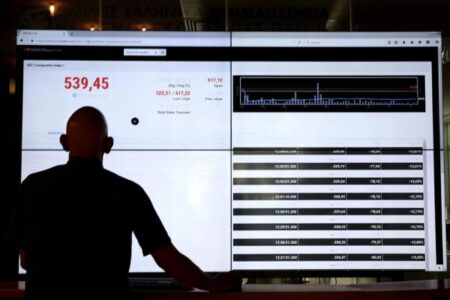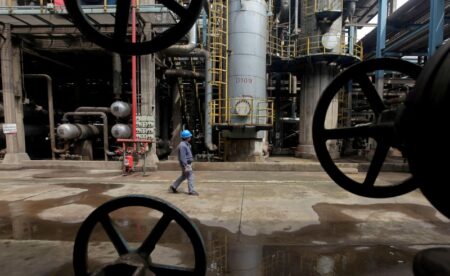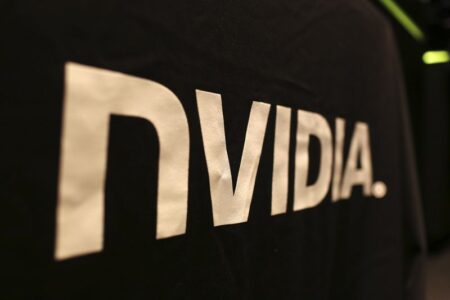By Patrick Wingrove
(Reuters) – One of the largest contract drug manufacturing plants in the U.S. owned by Thermo Fisher Scientific (NYSE:) over the past 10 years has repeatedly breached rules meant to ensure drugs are free of contamination, FDA documents show, including twice this year.
The most recent U.S. Food and Drug Administration inspection of Thermo Fisher’s Greenville plant in May identified manufacturing issues for the respiratory syncytial virus drug Beyfortus, a preventive antibody therapy from AstraZeneca (NASDAQ:) and Sanofi (NASDAQ:) for infants and toddlers.
The issues were resolved to the FDA’s satisfaction, the FDA and Sanofi said. There is no evidence that these manufacturing issues have resulted in harm to patients.
The 1.7 million square foot plant makes around 40 different medicines, according to the FDA’s national drugs directory, including life saving hospital-administered and pharmacy drugs and Novo Nordisk (NYSE:)’s weight-loss medicine Wegovy. Thermo Fisher bought the plant in 2017 with its acquisition of contract manufacturer Patheon.
Growth in obesity medicines and complex biologic therapies is fueling demand for U.S. contract manufacturers like Thermo Fisher. But two manufacturing experts say the plant’s 10-year audit record gives them reason to be concerned about the company’s approach to quality control.
“There are multiple issues with the culture of the organization. They are not looking at the long term and have a fix-when-caught mentality versus a culture of prevention,” said David Talmage, vice president of education at the Parenteral Drug Association, which provides training on best practices for sterile manufacturing.
The FDA’s inspection of the Beyfortus production line found that required manufacturing processes fell short in areas such as ensuring some equipment was sufficiently sterilized, according to a report obtained by Reuters through a Freedom of Information Act (FOIA) request.
A spokesperson for Sanofi, which markets Beyfortus in the U.S. where it was approved last year, said the FDA’s findings were all addressed and subsequently reviewed by the regulator. The FDA approved the Beyfortus doses before they left the plant for sale, the spokesperson said.
Sandy Pound, chief communications officer at Thermo Fisher, said the company participates in more than 1,000 regulator and customer inspections every year and takes regulator observations seriously. She did not comment on the specifics of the FDA audit.
FDA REPORT
The FDA report noted 17 shortfalls during the Beyfortus audit including inadequate visual inspections for any particulate matter floating in injectable drugs and problems with how staff handled sterile components.
One issue identified was Thermo Fisher had not provided the studies backing up how it measured and set thresholds for bubbles that can occur in injectable medicine. Such bubbles can cause deadly blood blockages in veins or arteries.
The FDA said in a statement that it had audited the plant for cause related to certain FDA approved products at the site and did not take or recommend regulatory or enforcement action, saying it was not warranted at this time.
Most concerns raised in FDA manufacturing audits are solved, as this one was, through agreement with the company. The FDA can take action when companies are uncooperative or do not make corrections fast enough or to its satisfaction.
The agency said the manufacturer had provided information on several matters including control of bubble size and information on allowable bubble size from a safety standpoint. The FDA added that the facility had “adequately addressed its concerns.”
The FDA did not comment when asked if patients had been harmed as a result of the lapses.
The medicines found to be at issue in five other FDA audits from 2014 through February this year, were not identified in regulatory reports obtained by Reuters. It has inspected the plant at least 10 times in the past 10 years.
The FDA conducts thousands of audits per year but time between visits to a plant varies. It does prioritize plants with sterile manufacturing operations such as this one.
Three experts who reviewed the FDA documents said they were concerned that staff had not followed procedures to prevent microbial contamination, including sufficiently sterilizing the equipment used to seal drugs and prevent leakage.
Steven Lynn, a former head of the FDA’s Office of Manufacturing and Product Quality who is now a regulatory compliance consultant, said the problems with Thermo Fisher’s checks for bubble size was one of the more troubling findings.
VACCINES, TOO
The FDA first inspected the plant this year in February, according to a separate report obtained by Reuters through FOIA, targeting COVID and flu vaccines, which are given in the fall when respiratory diseases circulate.
The regulator returned in May with the aim of auditing production of Beyfortus, Moderna (NASDAQ:)’s COVID-19 vaccine, and two flu vaccines made by Australia’s CSL (OTC:), according to a source familiar with the matter who was not authorized to speak.
Moderna and CSL both said they were not manufacturing vaccines at that plant during either FDA visit.
Thermo Fisher’s Greenville plant received $49 million from the U.S. Department of Defense in 2020 to help make COVID vaccines and is one of the latest government-funded factories found to have fallen short of FDA manufacturing standards.
Thermo Fisher’s manufacturing business, which operates as Patheon and includes more than 60 plants in 24 countries, makes up around $8 billion, or 19%, of its $42.8 billion annual revenue.
Thermo Fisher competes with contract manufacturing firms Lonza and Catalent (NYSE:), which has agreed to be bought by Novo Nordisk.
“Contract manufacturing will likely continue to be an above market growth driver for Thermo (partly) because of the underlying market demand,” said Deutsche Bank analyst Justin Bowers.
Read the full article here
















